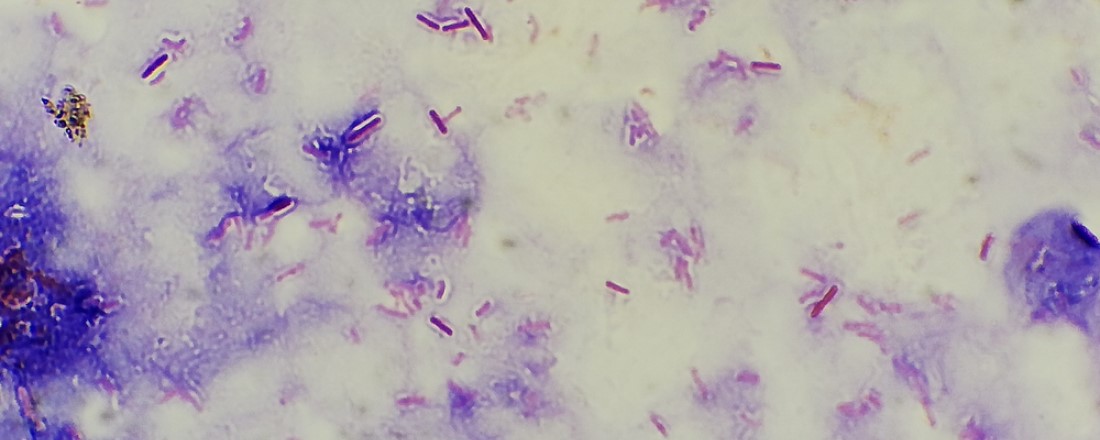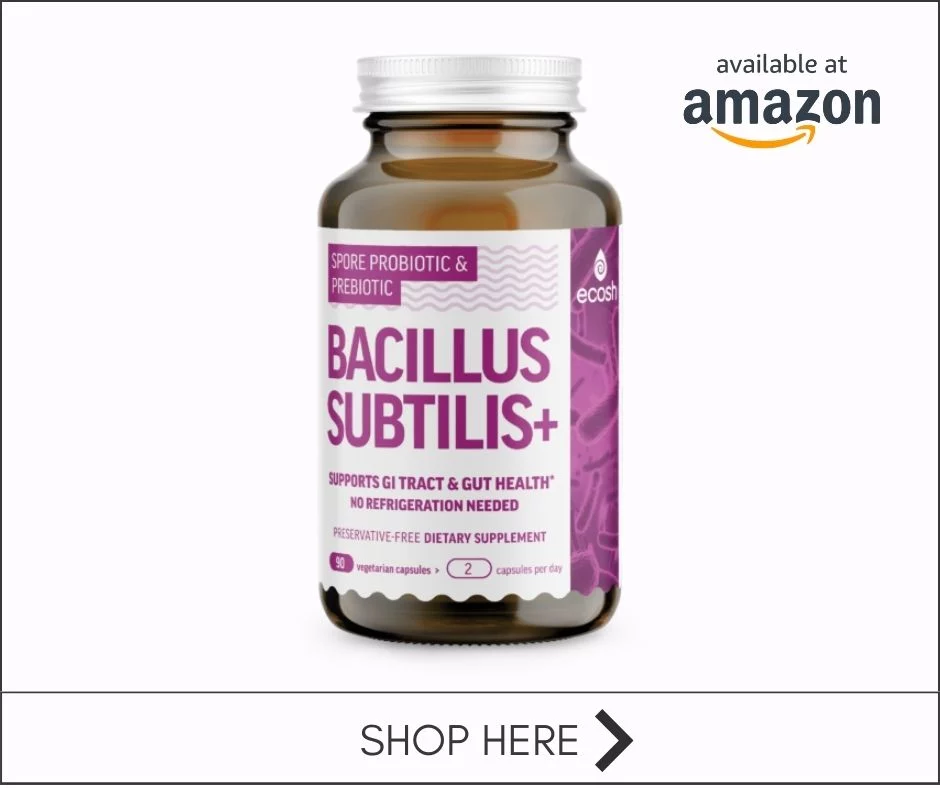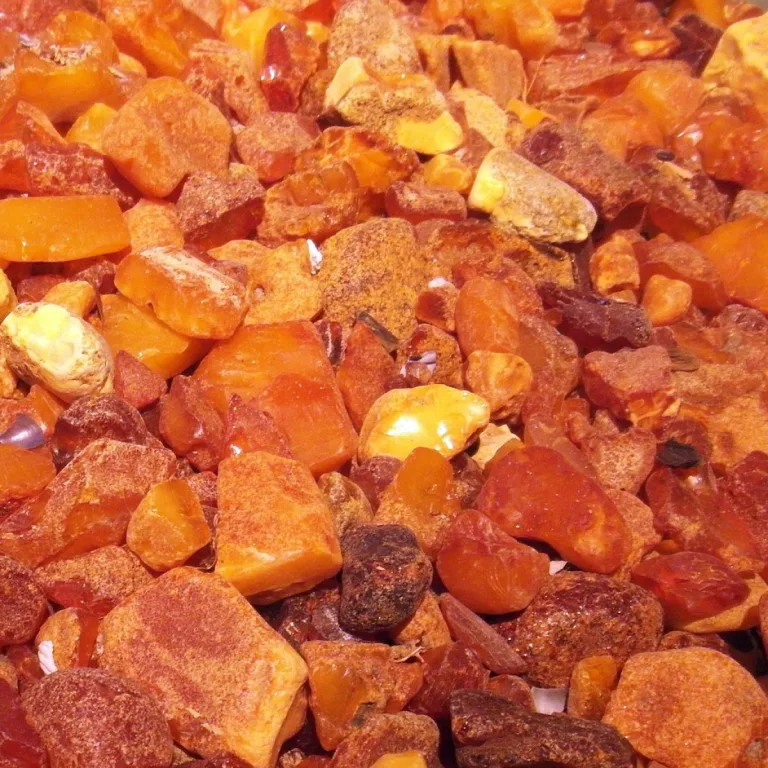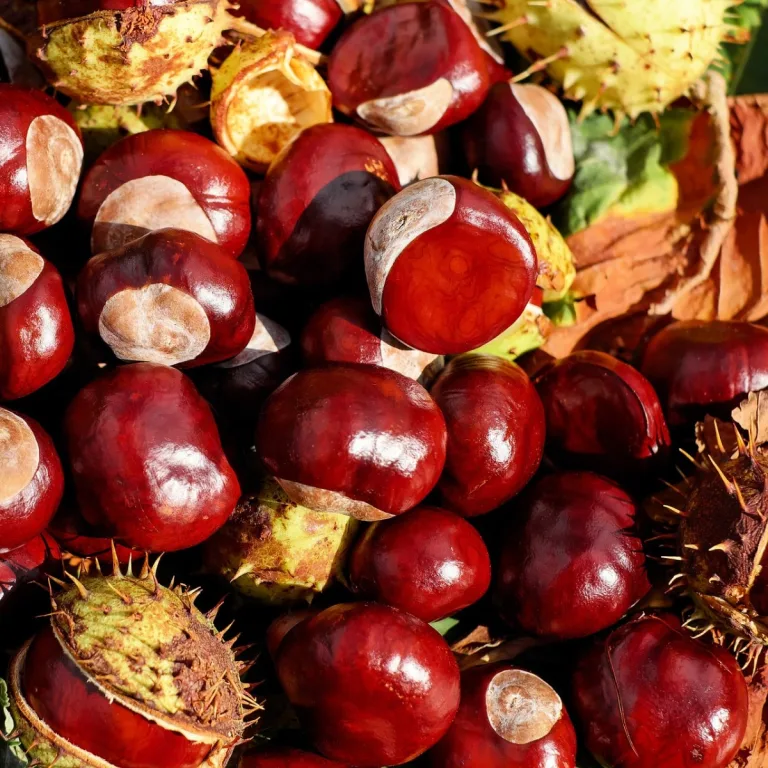Bacillus subtilis is a ubiquitous Gram-positive bacterium, found in water, soil, air, decomposing plant residue, and the GI tract of ruminants, like goats, sheep, and cattle. B. Subtilis is also present in the human GI tract.
As B. subtilis produces an endospore (a resistant asexual spore that develops inside some bacteria cells), this bacterium can survive in extreme conditions of heat and desiccation in the environment. For example, its spores can live up to six years in space if covered by dust that protects them from solar UV rays. B. subtilis also produces a range of proteases and other enzymes. That’s enabling it to degrade a diversity of natural substrates and promote nutrient cycling.
B. subtilis is a friendly and beneficial bacterium, as it does not possess traits that cause disease.
This bacterium is one of the most widely used bacteria on an industrial scale by biotechnology companies for the production of enzymes and specialty chemicals. For example, for the production of enzymes (such as amylase, protease, inosine), ribosides, and amino acids. The uses of this bacterium include also the production of pharmaceutical components and GMOs (1, 8).
But what are B. subtilis possible health benefits for humans? In this article, we write about Bacillus subtilis 17 health benefits based on science.
About Bacillus Subtilis
Although, after the 1950s (the time when antibiotics came around), this good bacteria lost its popularity – before the time people started to use antibiotics, B. subtilis different cultures were popular worldwide. Back then, people used this friendly bacteria as an immunostimulatory agent to help treat urinary tract and gastrointestinal diseases.
B. subtilis has also been widely used as an alternative to antibiotics in the farm animals and poultry industries. It is also used in the commercial production of the Japanese food natto, and related Korean food cheonggukjang.
Quick Facts About Bacillus Subtilis:
- Low GC Gram-positive bacteria (low G+C gram-positive bacteria have less than 50% of guanine and cytosine nucleotides in their DNA, while high G+C gram-positive bacteria have more than 50% guanine and cytosine nucleotides in their DNA).
- The best characterized among the low GC Gram-positive bacterial species.
- Rod-shaped.
- Has a single circular genome (chromosome).
- Has a cytoplasmic membrane and a thick cell wall, but no outer membrane.
- The sequenced genome (a method used to determine the entire genetic makeup of a certain organism or cell type to find changes in areas of the genome) of B. subtilis contains 4 214 630 base pairs.
- Forms heat-resistant, dormant spores.
- Received its name in 1872 from Ferdinand Cohn, who also showed B. subtilis ability to form heat-resistant spores.
- B. subtilis genome is easily manipulated genetically.
- Produces various commercially vital products, particularly proteases and amylases.
- Has been intensively studied due to its commercial importance and because of the ease of its genetic manipulation.
- Commonly found in the soil, but also in water, air, decomposing plant residue, the GI tract of ruminants (goats, sheep, and cattle), and in the GI tract of humans.
- Not pathogenic or toxic (2).
Extremely qualitative B. Subtilis supplements that survive digestive acid and help create balance in your belly are available here.
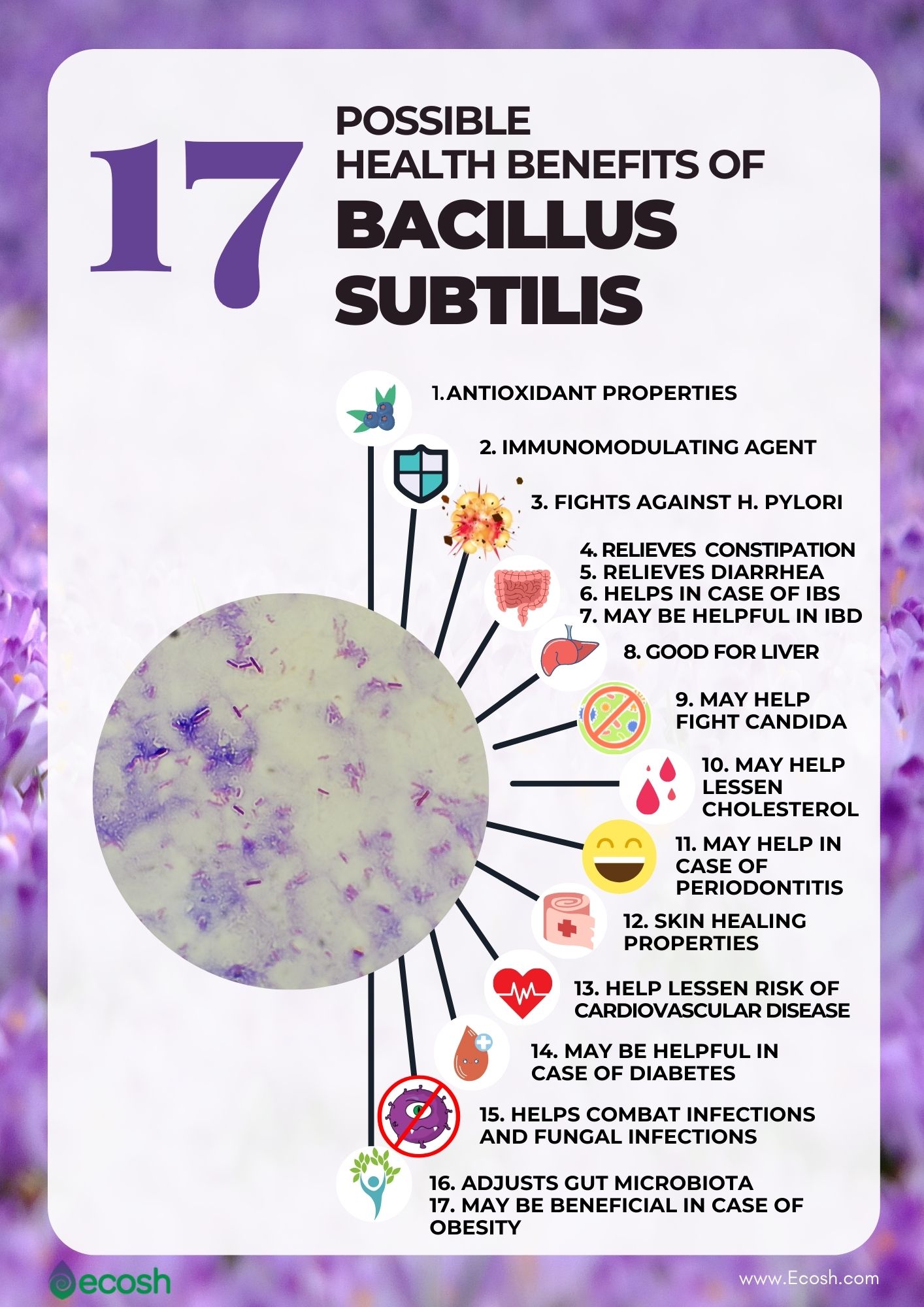
Bacillus Subtilis 17 Possible Health Benefits Based on Science
B. subtilis is a probiotic, and by balancing the intestinal microflora, probiotics may have plenty of other health benefits as well. Hereby we bring you the list of some health benefits of B. subtilis based on science.
1. B. Subtilis May Be Beneficial in Case of Obesity
Animal studies demonstrate that B. subtilis (strain B. subtilis B10) may lessen body weight gain in obese mice by reducing oxidative stress as well as improving lipid metabolism (2).
2. B. Subtilis Possesses Antioxidant Properties
Bacillus subtilis (strain B. subtilis BMB 44) has been shown to have high antioxidant and DNA protective activity. Antioxidants are vital in protecting cells against free radicals and their harmful action (3).
3. B. Subtilis Is Valuable for GI Tract as It Positively Adjusts Gut Microbiota
Probiotics, such as different species of Lactobacillus and Bifidobacterium have many health benefits. They may even positively affect your mental health and lessen the symptoms of depression. However, sometimes the balance in your gut switches, and bad bacteria starts dominating thereby inducing GI tract problems, dysbiosis, and thus also other serious illnesses.
Luckily B. subtilis beneficially modifies gut microbiota as it increases the growth of Lactobacillus and Bifidobacterium, and decreases Escherichia-Shigella (1, 4).
4. B. Subtilis May Help Lessen Cholesterol
The results of studies suggest that by modifying the composition of the gut microbiota – LCBE (combined strains B. subtilis R-179 and E. faecium R-026) may also improve host health by decreasing the level of cholesterol (4).
5. Bacillus Subtilis May Be Helpful in Case of Diabetes
One study showed that hypoglycemic (blood sugar lowering) and antilipidemic (promoting a reduction of lipid levels in the blood) activities displayed by B. subtilis SPB1 biosurfactant were effective enough to alleviate diabetes in rats. Therefore, based on the results of the study, Bacillus subtilis SPB1 biosurfactant could be thought of as a potential strong candidate for the prevention and treatment of diabetes (6).
Biosurfactants are active compounds produced by microbes (synthesized extracellularly, meaning made at the microbial cell surface or excreted) that can reduce both surface and interfacial tension.
Many microbes are known to produce biosurfactants in large relative quantities. Biosurfactants have been found useful for many purposes. For example, in the food industry biosurfactants are used for improving taste and texture, stabilization, and shelf-life elongation.
6. Bacillus Subtilis May Relieve Constipation
Bacillus subtilis may help relieve occasional constipation in healthy individuals. For instance, in one study people who took B. subtilis (strain B. subtilis DE111) reported an increased abundance of normal-type stools compared to those who administered a placebo. Thus, Bacillus subtilis DE111 dose at 1 billion CFU/day may improve occasional constipation while helping to maintain gastrointestinal health (9).
7. B. Subtilis May Help in Case of Diarrhea
The results of one study indicate that B. subtilis (strain B. subtilis CU1) prophylactic treatment may have potent antidiarrheal activity. The study showed that B. subtilis was active against diarrhea and may grow the capacity of the colon to absorb water in diarrheic conditions. In addition, B. subtilis may decrease intestinal hypersecretion (10).
8. B. Subtilis May Be Beneficial in Diarrhea-Predominant or Alternating Type Of IBS
Although more studies are needed, one study from Asia showed that probiotics such as Bacillus subtilis and Streptococcus faecium were successful in lessening the frequency and severity of abdominal pain compared with placebo in the diarrhea-predominant or alternating type of IBS (irritable bowel syndrome) (11).
9. B. Subtilis May Be Helpful In IBD
In one Asian animal study, researchers found that long-term (6 weeks) and continuous oral intake of B. subtilis during remission may successfully maintain the remission of IBD (inflammatory bowel disease) by protecting intestinal integrity, adjusting microbial structure and function, and regulating epithelial proliferation.
Moreover, the gut microbial structure was significantly better, with remarkably lessened harmful bacteria such as Escherichia/Shigella and Enterococcus, and increased beneficial bacteria as well as corresponding microbial function (12).
10. B. Subtilis May Help Fight Against H. Pylori Infection
Helicobacter pylori is a kind of harmful bacteria that causes stomach infection. This bacteria is the number one cause of peptic ulcers, and can also lead to gastritis as well as stomach cancer.
Sadly, only a limited amount of antibiotics can be used to fight H. pylori infection, so antibiotic resistance threatens the success of treatment. This is the reason why scientists try to find new effective treatment options for H. pylori infections.
Luckily, the results of one study showed that B. subtilis (cell-free supernatant of the strain Bacillus subtilis 3) can suppress the growth of H. pylori and that this inhibitory action is not due to organic acid production as first thought, but due to the production of antimicrobial substances (15).
11. Bacillus Subtilis May Stimulate Immune System
One study done on healthy elderly people (people aged 60–74) showed that despite the absence of remarkable results on common infectious disease (CID) in the whole population, consumption of B. subtilis (strain Bacillus subtilis CU1) notably stimulated systemic immune response in elderly by increasing serum IFN-gamma levels.
Although further studies are still needed, these findings suggest that daily administration of B. subtilis CU1 during the winter time may be a safe and efficient way to boost mucosal and systemic immune responses of seniors (16).
12. Bacillus Subtilis May Help Combat Infections and Fungal Infections
Bacillus subtilis and also B. amyloliquefaciens are both the most known enemies to harmful bacteria because they can produce different antifungal metabolites.
For example, bacillus subtilis can constantly produce and secrete numerous potential antifungal agents which can directly bind to fungal cell surface-associated proteins and cause terminal damage to the cell membranes, thereby avoiding drug resistance. Some of the strains of B. subtilis are also used as commercial biocontrol agents in the food industry (17, 18).
You can even say that B. subtilis strains are kind of antibiotics as they produce a wide range of antibiotics, including ribosomal and nonribosomal peptide antibiotics, as well as bacilysocin and neotrehalosadiamine (19).
B. subtilis has been also shown to have therapeutic effect against some multidrug resistant bacterial pathogens isolated from burn infections (20).
13. Bacillus Subtilis May Be Helpful in Liver Disorders
Animal studies show that taking dietary B. subtilis may likely alleviate alcohol-induced liver injury, lessen hepatic and intestinal injuries as well as harmonize gut microbiota and modulate gene expression profiles (the measurement of the activity of thousands of genes at once) (21, 22).
Extremely qualitative B. Subtilis supplements that survive digestive acid and help create balance in your belly are available here.
14. B. Subtilis May Have Skin Healing Properties
Animal studies suggest that taking B. subtilis orally may alleviate the development of skin lesions in case of atopic dermatitis. In addition, a biocomposite composed of bacterial cellulose gel-film and Bacillus subtilis cells may have a strong wound healing effect (13, 14).
15. B. Subtilis May Be Helpful In Case Of Periodontitis
The results of one study suggest that B. subtilis may be helpful for people with periodontitis, as mouth rinsing with Extraction 300E (containing B. subtilis E-300) significantly reduced periodontal pathogens compared with Neosteline Green which is commonly used mouth wash liquid in Japan (23).
16. Polysaccharides from B. Subtilis Sp. May Help Lessen Cardiovascular Disease Risk in Diabetics
Diabetes mellitus is a disease that may prompt complications like cataracts, retinopathy, nephropathy, and polyneuropathy as well as cardiovascular damage. However, one animal study suggested that exopolysaccharide (BSEPS) from B. subtilis sp. may improve hyperglycemia, dyslipidemia, and cardiovascular disease risk in diabetic rats (24).
17. Bacillus Subtilis May Help Fight Against Candida Albicans Infection
Studies suggest that Bacillus subtilis may be an efficient probiotic against Candida albicans and have antimicrobial activity against different human pathogenic Candida albicans species. Moreover, it may also prevent tissue damage during Candida infection (25, 26, 27).
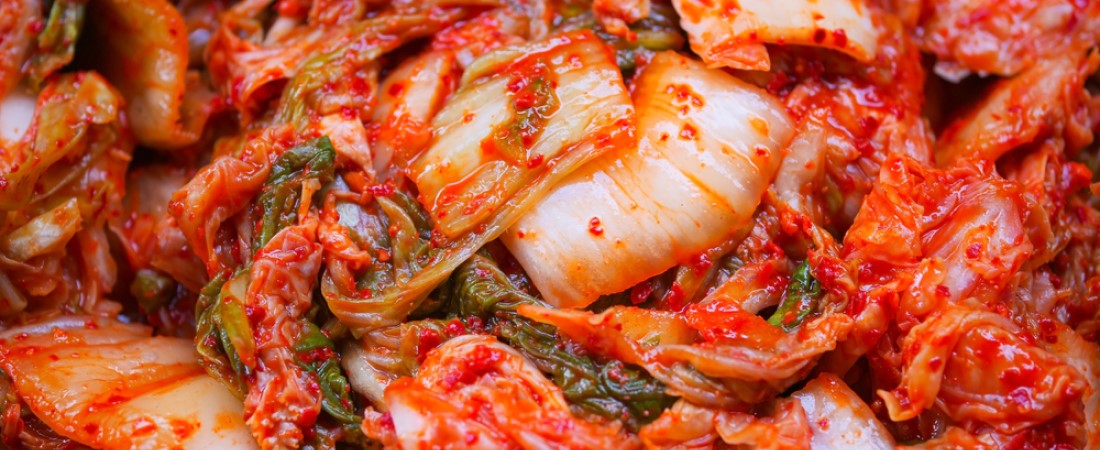
Foods That Contain Bacillus Subtilis
Different B. subtilis strains are naturally present in:
- Korean kimchi
- Egyptian kishk
- Variety of cultural adaptations of fermented soybean foods such as miso, natto, and thua nao
- Pasteurized milk and dairy products
- Chocolate milk with 1.5% fat (5, 7).
Is Bacillus Subtilis Safe?
Bacillus subtilis does not have features that cause diseases. Nor is it considered toxigenic or pathogenic to plants, animals, or humans. Therefore B. subtilis is a friendly organism (8).
Extremely qualitative B. Subtilis supplements that survive digestive acid and help create balance in your belly are available here.
NB! The information provided here is for informational purposes only, so do not consider it as health care or medical diagnosis and treatment. Do not consider this information as a guarantee of the results you want to achieve. In addition, do not take this information to replace the advice of your physician or other healthcare professional.
Even more, you should not use it to diagnose or treat a health problem. Before changing or discontinuing your existing medication, treatment, or care, or taking any dietary supplements, be sure to consult with your healthcare professional or doctor before starting any diet or program, or if you suspect you may have a medical condition.
Written by Maria-Helena Loik
Pictures: Pexels.com, Pixabay.com. Shutterstock.com
Sources:
- B. Subtilis – an overview | ScienceDirect
- Effect of dietary supplementation of B. subtilis B10 on biochemical and molecular parameters in the serum and liver (nih.gov)
- Effect of Bacillus subtilis on antioxidant enzyme activities (nih.gov)
- Effects of Live Combined Bacillus subtilis and Enterococcus faecium on Gut Microbiota (nih.gov)
- Safety Assessment of B. subtilis MB40 for Use in Foods and Dietary Supplements – (nih.gov)
- Assessment of the antidiabetic and antilipidemic properties of B. subtilis SPB1 biosurfactant- PubMed (nih.gov)
- Natural transformation of B. subtilis in foodstuffs | Oxford Academic (oup.com)
- FINAL RISK ASSESSMENT OF B. SUBTILIS
- The Effect of B. subtilis on the Daily Bowel Movement (longdom.org)
- Antidiarrheal Action of B. subtilis (nih.gov)
- Bugs and Irritable Bowel Syndrome (medscape.com)
- Long-term and continuous administration of B. subtilis during remission effectively maintains the remission of inflammatory bowel disease (RSC Publishing)
- Evaluation of Dermatophagoides farinae-induced dermatitis in NC/Nga mice orally administered B. subtilis – PubMed (nih.gov)
- Antimicrobial and wound healing properties of a bacterial cellulose based material containing B. subtilis cells – ScienceDirect
- Helicobacter pylori Activity of the Probiotic Strain B. subtilis – PMC (nih.gov)
- B. subtilis CU1 stimulates immune system of elderly (nih.gov)
- Antifungal action of B. subtilis – ScienceDirect
- Living Bacterial Microneedles for Fungal Infection Treatment (sciencemag.org)
- Activation of Antibiotic Production in Bacillus spp. by Cumulative Drug Resistance Mutations (asm.org)
- Therapeutic activity of B. subtilis against some multidrug resistance bacterial pathogens (scitation.org)
- B. subtilis supplementation alleviates alcohol-induced liver injury – PMC (nih.gov)
- B. subtilis Attenuates Hepatic and Intestinal Injuries and Modulates Gut Microbiota and Gene Expression Profiles (frontiersin.org)
- The effect of Bacillus subtilis mouth rinsing in periodontitis – PubMed (nih.gov)
- Effect of polysaccharide from Bacillus subtilis sp. on cardiovascular diseases – PMC (nih.gov)
- Capability of iturin from Bacillus subtilis to inhibit Candida – PubMed (nih.gov)
- Anti-Candida effect of bacillomycin D-like lipopeptides from Bacillus subtilis | Oxford Academic (oup.com)
- Immunomodulatory mechanism of Bacillus subtilis against Candida – ScienceDirect
